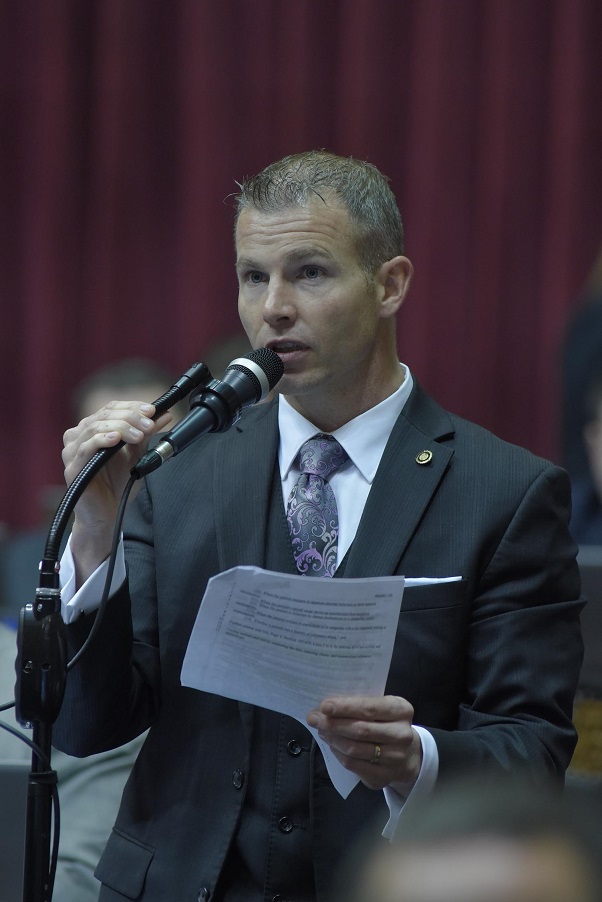The Missouri House has given initial approval to a proposed tracking system for prescription drugs that backers hope will fight opioid abuse in Missouri. Specifically it aims to help stop “doctor shopping;” the practice of going to multiple doctors seeking multiple prescriptions for valuable and addictive medications.

House Bill 90 would make Missouri the 50th state to enact a prescription drug monitoring program (PDMP). The electronic registry would take information on those who prescribe, use, or dispense prescription drugs.
The bill had bipartisan support in a 109-40 vote. West Plains Republican Shawn Rhoads, a former police detective, said it is an answer to opioid abuse in Missouri.
The bill is sponsored by Sikeston Republican Holly Rehder, who has spoken publicly many times about her own family’s experience with addiction.
Rehder said it was that fear that caused her to raise her children “differently,” but when her daughter was given a prescription for opioid painkillers after cutting her thumb at work, she became addicted.
“From that point forward we had 13 years of addiction,” said Rehder.
Rehder said addictions to opioid painkillers often begin with a legal prescription following an injury, such as when a high school athlete gets hurt.
Before giving the bill first-round approval, the House changed it so that by 2020, pharmacists will have to report information to the registry in real-time.
The sponsor of that change, Representative Lynn Morris (R-Nixa), owns a chain of pharmacies.
Opponents say a PDMP creates a government database and poses a threat to the privacy of anyone using prescription drugs.

Harrisonville Republican Rick Brattin also argued PDMPs must not be effective because they exist in all other states, yet President Donald Trump has launched a task force to fight opioid addiction.
Ash Grove Republican Mike Moon also maintains PDMPs are not effective, and urged his fellow lawmakers to consider whether Missouri should launch one.
Brattin and others offered other changes to HB 90 saying it needed to be strengthened, in part because similar versions have stalled in the state Senate in past years. Rehder urged legislators to reject them, saying that over the five years she’s handled the issue, stakeholders including law enforcement and medical experts have helped develop the language she’s proposing. Those amendments were then rejected.
Another favorable vote would send the bill to the Senate, where in past years it has been stopped primarily by Senator Rob Schaaf (R-St. Joseph), who has his own PDMP proposal which cleared that chamber early this month.